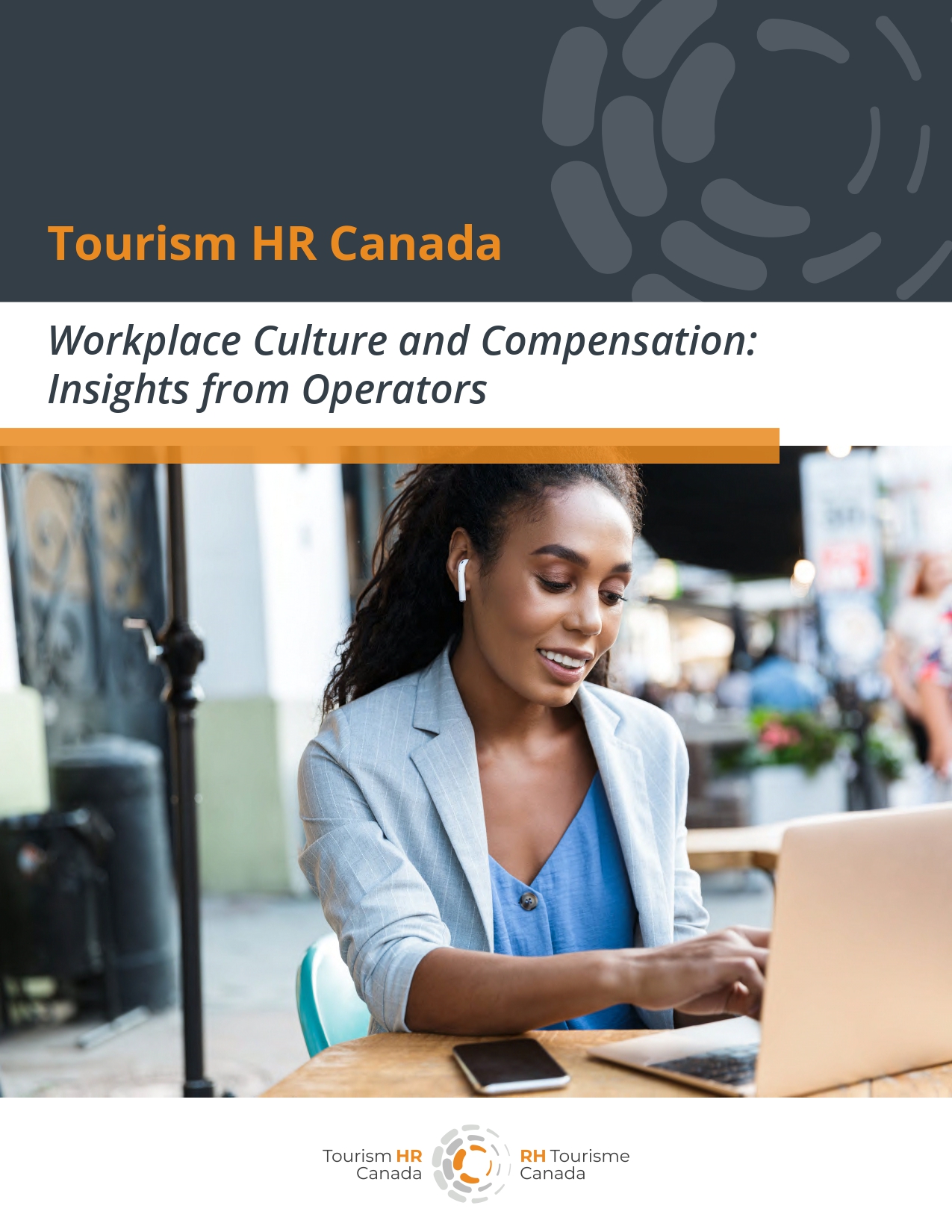As the tourism sector continues to adjust to the shifting post-pandemic labour landscape, compensation is one of the variables that business operators are grappling with. This includes wages, but also encompasses a wider range of business practices, from perks and benefits to the kind the culture a workplace fosters. This broader sense of ‘compensation’ is an important pillar in hiring and retaining a reliable workforce, so getting it right is worth the effort.
This new report from Tourism HR Canada explores some of the compensation-related decisions that tourism operators have made over the past three years, in response to both the pandemic and the general changes in the labour market. Some businesses were able to use the pandemic downtime to revamp and refresh their product lines, while others spent the time hunkered down in survival mode. No tourism business escaped completely untouched.
Drawing on insights from 75 tourism operators from across the country, this paper looks at some of the shared experiences that have characterized the past three years, and considers some of the ways we can change what it means to work in tourism, with an eye towards reinvigorating the sector and re-engaging with our workforce.
The road ahead is going to be rough as we continue to push through recovery and into regrowth, so now is the time to listen to operators, celebrate their successes, and learn from their challenges. The compensation cultures that we nurture in the years to come will shape our businesses, our employees, our guests, and our sector as a whole.

